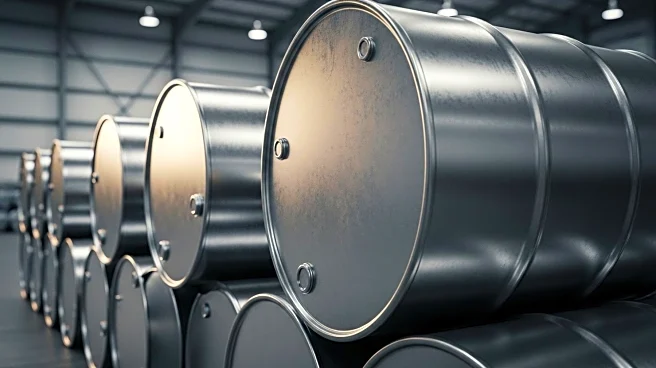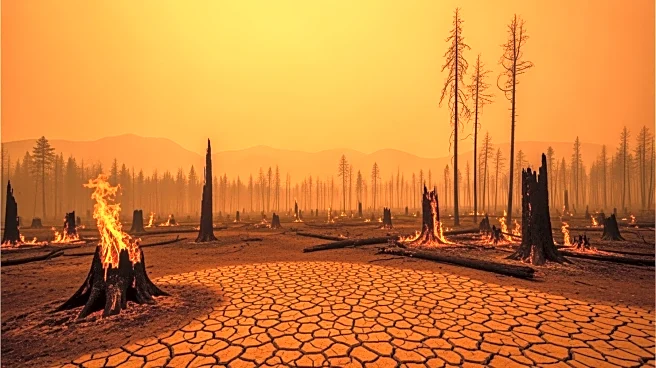What's Happening?
Russia has increased its oil production to align closely with the ceiling set by the OPEC+ agreement, according to Russian Deputy Prime Minister Alexander Novak. In September, Russia was permitted to produce 9.415 million barrels per day (bpd), including compensation adjustments. Novak stated that the production levels were close to the quota, despite previous months showing a slight underproduction. The country has extended bans on gasoline and diesel exports due to fuel shortages exacerbated by Ukrainian drone attacks on Russian refineries.
Why It's Important?
The increase in oil production is significant as it reflects Russia's commitment to meeting OPEC+ agreements, which are crucial for global oil market stability. The bans on fuel exports highlight the ongoing impact of geopolitical tensions on energy supplies. These developments could affect global oil prices and supply chains, influencing energy costs and economic conditions in the U.S. and other countries reliant on oil imports.
What's Next?
Russia's future production levels will likely depend on geopolitical developments and infrastructure stability. The ongoing conflict with Ukraine and potential retaliatory actions could further impact production capabilities and export strategies. Stakeholders in the energy sector will be closely monitoring these developments for potential disruptions.
Beyond the Headlines
The geopolitical tensions between Russia and Ukraine continue to pose risks to energy infrastructure, highlighting vulnerabilities in global energy security. The situation underscores the need for diversified energy sources and strategies to mitigate reliance on politically unstable regions.










